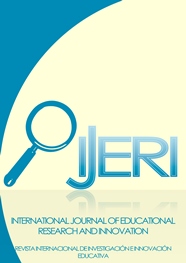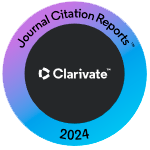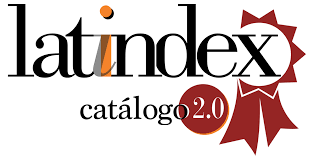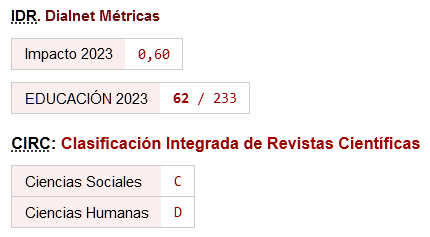Educational research in the 21st century: challenges and opportunities for scientific effectiveness
Keywords:
Investigación educativa, retos y oportunidades, educación, aprendizaje, conocimiento científico, efectividad científica, educational research, challenges, opportunities, education, learning, scientific effectivenessAbstract
Resumen
A través de décadas, la investigación educativa ha sido objeto de mucho debate sobre cuál debe ser el propósito en el desarrollo del conocimiento científico en el campo de la educación. El propósito de este trabajo es presentar los antecedentes históricos de la disciplina de la investigación educativa: enfoques, objetivos y estrategias para la investigación en el campo de la educación. Del mismo modo, se presentan los desafíos y oportunidades de la investigación educativa. Los desafíos de la investigación educativa se identifican en las siguientes áreas: la naturaleza política de la educación; El problema de la definición de la investigación educativa como ciencia y la dislocación entre la investigación educativa y la práctica de la educación. Las oportunidades pueden situarse en el contexto de las siguientes áreas: consenso sobre el conocimiento de la educación conducente a un paradigma hacia la alineación, utilidad del conocimiento en la práctica de la profesión para establecer su efectividad científica e investigación de las políticas educativas.
Abstract
Through decades, educational research has been the subject of much debate over what should be the purpose in the development of scientific knowledge in the field of education. The purpose of this paper is to present a historical background on the discipline of educational research: approaches, goals and strategies for research in the area of education. Similarly, the challenges and opportunities of educational research are presented. The challenges of educational research are identified in the following areas: the political nature of education; the problem of definition of educational research as a science and the dislocation between educational research and practice of education. Opportunities can be placed in the context of the following areas: consensus on the knowledge of education leading to a paradigm towards alignment, the utility of knowledge in the practice of the profession to establish their scientific effectiveness and research of education policies.
Downloads
References
Astin, A. W., & Linsing, A. A. (2012). Assessment for Excellence, 2nd Ed. American Council on Education. Rowman & Littlefield Publisher, Inc.
Berliner, D. (2002). Educational Research: The Hardest Science of All. Educational Researcher, 31(8) 18-20
Biesta, G. J., & Burbules, N. C. (2003). Pragmatism and Educational Research. Lanham, MD: Rowman & LittleField Publisher Inc.
Carr, W., & Kemmis, S. (1986). Becoming Critical: Education Knowledge and Action Research. Routhledge Farmer. Taylor & Francis Groups.
Charles, C. M. (1988). Introduction to Educational Research. New York & London: Longman.
Clark, C. (2011). Education(al) Research, Educational Policy-Making and Practice. Journal of Philosophy of Education, 45(1) 37-57.
Cohen, L., & Manion, L. (1980). Research Methods in Education (2nd Ed.). London, New York, Sydney: Croom Helm
Condliffe, E. (2000). An Elusive Science: The Troubling History of Education Research. Chicago and London: The University of Chicago Press.
Condliffe, E., & Shulman, L.S. (Ed) (1999). Issues in Education Research: Problems and Possibilities. San Francisco: National Academy of Education and Jossey-Bass Publishers.
Diko, N., & Bantwini, B.D. (2013). Research politics: Some Issues in conducting research for the government as a client. Perspective in Education, 31(4) 15-26.
Earl, L. M. (2003). Assessment as Learning: Using Classroom Assessment to Maximize Student Learning. San Francisco Thousand Oaks, California: Corwing Press, Inc.
Elliot, J. (2007). Making evidence-based practice educational. (Chapter 5. In Hammersley, M. (Ed). Educational Research and Evidence-Based Practice. Los Angeles, London, New Delhi, Singapore: Sage Publications.
Fernández Ramírez, B. (2014). En Defensa del Relativismo: Notas Críticas desde una Posición Construccionista. Aposta, Revista de Ciencias Sociales, 60, 1-36.
Gil Cantero, F., & Reyero, D. (2014). La prioridad de la filosofía de la educación sobre las disciplinas empíricas de la investigación educativa. Revista Española de Pedagogía, 258: 263-280.
Green, B. (2010). Knowledge, the Future, and Education(al) Research: A New-Millennial Challenge. The Australian Educational Researcher, 37(4) 43-62.
Greene, J. (2007). Mixed Methods in Social Inquiry. San Francisco, California: Jossey-Bass & Wiley.
Hammersley, M. (Ed) (2007). Educational Research and Evidence-Based Practice. Los Angeles, London, New Delhi, Singapore: Sage Publications.
Hargreaves, D. (2007). Teaching as research-based profession: Possibilities and Prospects (Chapter 1. In Hammersley, M, (Ed). Educational Research and Evidence-Based Practice. Los Angeles, London, New Delhi, Singapore: Sage Publications.
Hedges, L., & Hanis-Martin, J. (2009). Can Non-randomized Studies Provided Evidence of Causal Effects? A Case Study Using the Regression Discontinuity Design. (Chapter 4. In Walter, P. B.,
Lareau, A., & Ranis, S. H. (2009). Education Research on Trial: Policy Reform and the Call for Scientific Rigor. Routhledge. Taylor & Francis Group. New York and London.
Huba, M., & Freed, J. (2000). Learnend-Centered Assessment on College Campus: Shifting theFocus from Teaching to Learning. Boston, London, Toronto, Sydney, Tokyo, Singapore: Allyn and Bacon
Johannigmeier, E. V., & Richardson, T. (2008). Educational Research, the National Agenda, and Educational Reform: A History. A Volume in Studies in the History of Education. Charlotte, North Carolina: Information Age Publishing, Inc.
Koichiro, M. (2013). Cultivating the Ground for the Study of Education as an Inter-disciplinary Enterprise: A Philosophical Perspective. Educational Studies in Japan: International Year Book, 7(3). 37-49
Labaree, D. (2004). The Trouble with Ed Schools. New Haven and London: Yale University Press.
Latorre, A. (2008). La investigación-acción: Conocer y cambiar la práctica educativa. Yale University Press: Editorial Grao, de IRIF, S.L. Barcelona.
Lee, A. (2010). What Count as Educational Research? Spaces, Boundaries, and Alliances. The Australian Educational Researcher, 37(4) 63-78.
Lysenko, L., Abrami, P., Bernand, R., Degenais, C., & Janosz, M. (2014). Educational Research in Educational Practice: Predictors of Use. Canadian Journal of Education, 37(2) 1-26.
Marley, S.C., & Levin, J. R. (2011). When are Prescriptive Statements in Educational Research Justified? Educ Psychol Rev, 23:196-206.
McMillan, J. H., & Schumacher, S., (2005). Investigación Educativa: Una Introducción conceptual (5th Ed). Madrid, México, Bogotá, Buenos Aires, Caracas, Lima, Montevideo, San Juan, San José, Santiago, San Paulo, White Plains: Pearson and Addison Wesley.
Mertens, D. (2005). Research and Evaluation in Education and Psychology: Integrating Diversity with Quantitative, Qualitative, and Mixed Methods (2nd Ed). Thounsand Oaks, California: Sage Publications,
Pacheco-Méndez, T. (2015). Sociologando: Investigación y políticas públicas en educación. Boletín Científico Sapiems Research, 5(1): 33-37.
Paul, J. (2005). Introduction to the Philosophies of Research and Criticism in Education and the Social Sciences. Upper Sanddle River, New Jersey: Pearson & Merril Prentice Hall.
Pedró, F. (2014). Las Políticas de Investigación e Innovación en Educación: Una Perspectiva Supranacional. Sociedad Española de Pedagogía, 67(1): 39-56.
Peñalva, J. (2014). The Non-theoretical View of Educational Theory: Scientific,Epistemological, and Methodological Assumptions. Journal of Philosophy of Education, 48(3) 400-415.
Phillips, D.C. (2009). A Quixotic Quest? Philosophical Issues in Assessing the Quality of Educational Research. (Chapter 7. In
Walters, P., Lareau, A. and Ranis, S. Education Research on Trial: Policy Reform and the Call for Scientific Rigor. New York and London: Routledge
Phillips, D.C. (2005). The Contested Nature of Empirical Educational Research (and Why Philosophy of Education Offers Little Help). Journal of Philosophy of Education, 39(4) 577-597.
Phillips, D.C., & Burbules, N. (2000). Postpositivism and Educational Research. New York: Rowman & Littlefield Publishers, Inc.
Ponce, O. A. (2016). Investigación Educativa. San Juan, Puerto Rico: Publicaciones Puertorriqueñas Inc.
Ponce, O. A., & Pagán, N. (2015). Mixed Methods Research for Education: Capturing the Complexity of the Profession. International Journal of Educational Excellence, 1(1). 111-135.
Ponce, O. A. (2014ª). Avalúo del Aprendizaje y Calidad Educativa: Teorías, Prácticas y Debates. San Juan, Puerto Rico: Publicaciones Puertorriqueñas Inc.
Ponce, O. A. (2014b). Investigación Cualitativa en Educación: Teoría, Prácticas y Debates. San Juan, Puerto Rico: Publicaciones Puertorriqueñas Inc.
Ponce, O. A, Pagán-Maldonado, N., & Gómez Galán, J. (2017). Filosofía de la Investigación Educativa en una Era Global: Retos y Oportunidades de Efectividad Científica. San Juan, Puerto Rico: Publicaciones Puertorriqueñas
Pring, R. (2007). Reclaiming Philosophy for Educational Research. Educational Review, 59(3) 315-330.
Pring, R. (2000). Philosophy of Educational Research (2nd Ed). London: Continuum
Ranis, S.H. (2009). Blending Quality and Utility: Lessons Learned from the Educational Research Debates. (Chapter 5. In In Walter,
P. B., Lareau, A., & Ranis, S. H. (2009). Education Research on Trial: Policy Reform and the Call for Scientific Rigor. Routhledge. New York and London: Taylor & Francis Group
Ravitch, S. M. (2014). The Transformative Power of Taking an Inquiry Stance on Practice: Practitioner Research as Narrative and Counter-Narrative. Perspective of Urban Education, 11(1) 1-10.
Rice, J. A., & Vastola, M. (2009). Who Needs Critical Agency?: Educational research and the rhetorical economy of globalization. Educational Philosophy and Theory. 43(2): 148-161.
Scheneider, J. (2014). Closing the gap…between the university and schoolhouse. Kappan. September. 30-35.
Segovia, J. (1997). Investigación educativa y formación del profesorado. Madrid: Editorial Escuela Española, S.A.
Sierra Nieto, J.E., Caparrós Martín, E., Díaz Moreno, N.C. (2016). Nuevas miradas en investigación educativa: indagar pedagógicamente la experiencia, International Journal of Educational Research and Innovation (IJERI), 5, 184-194, ISSN: 2386-4303
Shavelson, R., & Towne, L. (Ed) (2002). Scientific Research in Education. National Research Council. National Academy Press. Washington, DC.
Smeyers, P., & Depaepe, M. (2008). A method has been found? On educational research and its methodological preoccupations. Paedagogica Historica, 44(6) 625-633.
Thompson, C. (2012). Theorizing Education and Educational Research. Stud Philos Educ, 31:239-250.
Vinovskis, M. (2009). A History of Efforts to Improve the Quality of Federal Educational Research: From Gardner’s Task Force to the Institute of Educational Science (Chapter 2. In Walter, P. B.,
Lareau, A., & Ranis, S. H. (2009). Education Research on Trial: Policy Reform and the Call for Scientific Rigor. Routhledge. Taylor & Francis Group. New York and London.
Walters, P. B. (2009). The Politics of Knowledge. (Chapter 1. In
Walter, P. B., Lareau, A., & Ranis, S. H. (2009). Education Research on Trial: Policy Reform and the Call for Scientific Rigor. New York and London: Routhledge, Taylor & Francis Group
Walter, P. B., Lareau, A., & Ranis, S. H. (2009). Education Research on Trial: Policy Reform and the Call for Scientific Rigor. Routhledge. Taylor & Francis Group. New York and London.
Walter, P. B., Lareau, A., & Ranis, S. H. (2009). Education Research on Trial: Policy Reform and the Call for Scientific Rigor. New York and London: Routhledge. Taylor & Francis Group.
Wolfin, S. L. (2014). Charting Research on the Policies and Politics of Coaching. Education Policy Analysis Archive, 22(50): 1-8.











